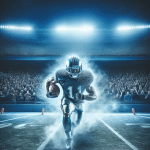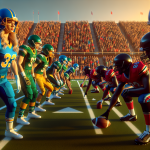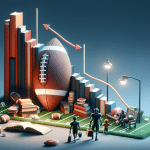Philadelphia Eagles star running back Saquon Barkley found himself in hot water with the league office, becoming the latest player to receive a hefty fine for an on-field incident that went unnoticed by the officials during the game.
The NFL wasted no time in penalizing Barkley, slapping him with a hefty $45,020 fine for what was deemed as “Unnecessary Roughness (use of the helmet).” The league did not hold back in holding Barkley accountable for his actions on the field.
During the controversial play in question, Barkley found himself in a collision with Cleveland Browns defensive tackle Maurice Hurst. Both players lowered their helmets, leading to a direct impact with the tops of their helmets connecting. Surprisingly, while both players were involved in the play, it was only Barkley who found himself facing a financial consequence. Hurst, on the other hand, was let off the hook without any penalties or fines.
The lack of consistency in the NFL’s approach to enforcing discipline has been a growing concern among players in the league. Many have expressed frustrations over hits on the field that go unpunished by officials only to result in severe penalties issued by the league office post-game. This case involving Barkley only adds to the ongoing debate surrounding the fairness and transparency of the NFL’s disciplinary measures.
Barkley’s hefty fine not only caught the attention of fans and analysts but also stood out as one of the largest fines handed out by the league in recent weeks. The financial consequence serves as a stark reminder to players that actions on the field, whether noticed or not by officials, will not go unpunished by the NFL.
In the world of American football, where physicality and aggression are part of the game, fines such as Barkley’s serve as a reminder of the league’s commitment to player safety and welfare. It remains to be seen how players will adjust their playstyles in response to the league’s strict enforcement of rules and regulations, but one thing is clear – the NFL is not backing down when it comes to maintaining a standard of conduct on the field.






